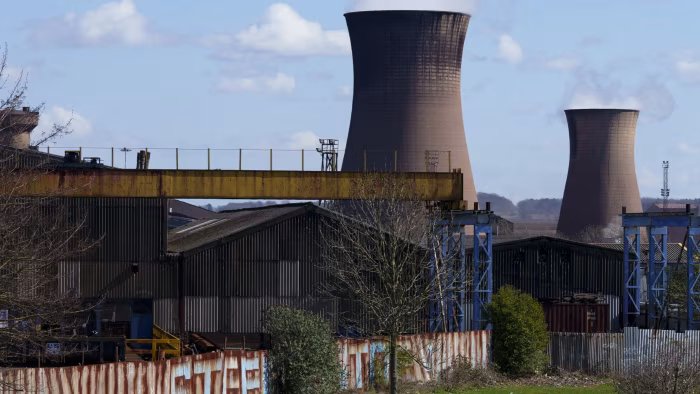Unlock the Editor’s Digest for free
Roula Khalaf, Editor of the FT, selects her favourite stories in this weekly newsletter.
The UK government is seeking to line up bankers to run a sales process for British Steel after taking control of the steelworks earlier this year.
Ministers are hopeful of finding a private buyer for British Steel, which is being supported by the taxpayer after the government passed emergency legislation in April. The sales process would run despite China’s Jingye Steel still technically owning the main Scunthorpe site and assets, according to people familiar with the situation.
Any potential buyer of British Steel was expected to demand large state subsidies, the people added. One person familiar with the government’s thinking said the deal might require a “dowry” to be paid to a buyer, or the state underwriting the risk of taking on the lossmaking company.
Officials said the process to appoint advisers had not begun. People close to the situation said no decision had been taken about British Steel’s future and that the sales process was at an early stage.
The government seized control of the management of British Steel seven months ago amid fears that Jingye was planning to walk away from its Scunthorpe steelworks, which was losing £700,000 a day.
The takeover preserved the jobs of 3,500 British Steel workers but has left the taxpayer footing the bill for the lossmaking company.
The government has paid £274mn to keep the company running, supplying raw materials, salaries and addressing unpaid bills, including for smaller businesses in the supply chain, according to a written statement to parliament last week.
Chris McDonald, minister for industry, said in the statement: “We continue to work with Jingye to find a pragmatic, realistic solution for the future of British Steel [ . . .] our long-term aspiration for the company will require co-investment with the private sector to enable modernisation and decarbonisation, safeguard taxpayers’ money and retain steelmaking in Scunthorpe.”
Jingye is expected to demand compensation for any loss of ownership that could top £1bn, the Financial Times has previously reported. There are some concerns at British Steel that efforts to move ahead with the sale could frustrate ongoing negotiations with Jingye, according to people familiar with the British company’s position.
British Steel declined to comment. Jingye did not respond to requests seeking comment.
A government spokesperson said: “We will ensure a bright and sustainable future for steelmaking and steel jobs in the UK and are continuing discussions with Jingye over the long-term future of the site.”
A plan to sell the company comes as a global glut of the metal has driven down prices and as the industry has been left reeling by US President Donald Trump’s tariffs. High energy prices in Britain also make the economic case for the plant more difficult.
The Scunthorpe plant has had a chequered history, with several failed attempts over the past decade to turn it into a profitable business.
British private equity group Greybull Capital bought the business from India’s Tata Steel in 2016 for just £1, only for the company to collapse into administration in 2019.
In March 2020 Jingye saved the plant from closure by buying British Steel from the UK’s official receiver for about £50mn.
The group pledged to invest £1.2bn to revitalise the group’s fortunes but wanted taxpayer support to help it move to more environmentally friendly electric arc furnaces, which melt down recycled steel.
Additional reporting by Laith Al-Khalaf and Ashley Armstrong

